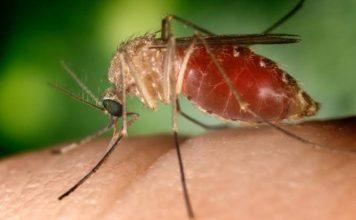According to experts, a survey has identified 10 impoverished and low-income communities in Akure, the capital of Ondo State, as malaria hotspots. They have called for interventions to address the insufficient housing infrastructure in these areas, which contributes to the high incidence of malaria cases.
These 10 communities have a malaria prevalence higher than 10% with 80% certainty. They include Isolo-Araromi, Arakale, Aiyedun, Kajola, Idi-Agba, Fanibi Lafe, Oba-Ile Phase Two, Oda, Orita Obele, and Irese.
A recent study published in Scientific Reports stated that these communities are located in the central, transitional, and newly developed areas of the city. These areas lack proper urban planning and development control. The researchers recommend targeted malaria control measures by health authorities to reach Nigeria’s malaria elimination goal.
They stated that the combination of old and inadequate buildings, inadequate drainage systems, insufficient space between buildings, and ineffective planning control with scattered sites all contribute to the high spread of malaria in these communities.
A research paper, titled “Identifying childhood malaria hotspots and risk factors in a Nigerian city using a geostatistical modelling approach,” found that areas with higher socioeconomic status, such as Oba-Ile Phase One, Ijapo Estate, and Alagbaka Estate, had lower incidences of malaria in children under five years old.
The study classified positive malaria cases based on its own criteria and found that certain locations had a malaria prevalence of over 35%, while others had rates over 10%.
The research also revealed that 40% of children have access to Insecticidal Treated Nets (ITNs), and those who use ITNs have a lower malaria prevalence (16.7%) compared to those who do not (26.4%). Additionally, malaria prevalence was higher among female children (23.3%) than male children (21.9%).
“The houses in good condition characterised by good window screening have a lower prevalence of malaria (18.6%), while children living in substandard houses characterised by poor or defective window covering recorded a higher prevalence of malaria (39.9%).
“The burden of U5 malaria is higher (28%) among households with dug wells compared to affluent households that depend on piped water sources (15.9%). Also, U5 children living in places with covered drainage record a lower burden of malaria (13.3%) compared with U5 children dwelling in places with poor drainage facilities (24.3%).
“U5 children whose fathers are employed in the formal sector have a lower burden of malaria (18.2%) compared with U5 children whose fathers are either employed in the informal sector (26%) or unemployed (28.6%). Similarly, U5 malaria prevalence is lower among mothers who have obtained tertiary education (18.4%) compared to mothers with no education (33.3%).”
The researchers suggested that it is important to address these risk factors through interventions and to continue monitoring the prevalence of malaria, as well as assessing the effectiveness of interventions.
